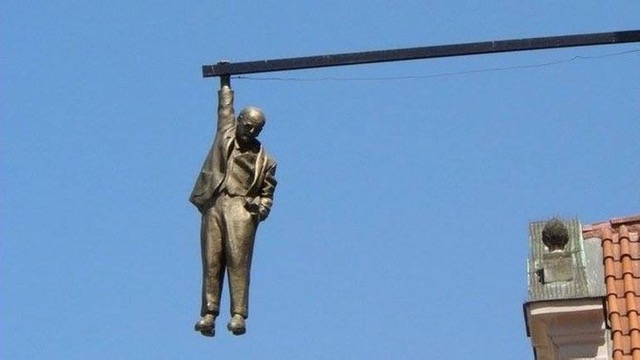Rethinking Psychoanalysis in Central Europe: Interdisciplinary and Transnational Perspectives
A seminar organized by Agnieszka Sobolewska (PhD fellow at CEFRES, PhD candidate at Paris-Sorbonne University & Warsaw University) with CEFRES, the Institute of Polish Culture (Warsaw University) and Eur’ORBEM (Paris-Sorbonne University).
Seminar presentation
As a field of knowledge, Psychoanalytic Studies develop around the world. On the one hand, psychoanalysis is considered a clinical practice. On the other hand, it can be understood as a form of social knowledge and critical theory. As one of the most influential intellectual currents Freud’s theory marked psycho-medical, social and human sciences. Although after 1945 the psychoanalytic movement developed rapidly in the United States, psychoanalysis – as a theory and practice – was born at the beginning of the twentieth century in Central Europe. Before the outbreak of the Second World War Freud’s theory interfered not only with psychiatry or psychology, but also with Central European literature, philosophy, and art. In 1910 psychoanalysis became an international movement and gathered followers and advocates around the world. During the first three decades of the twentieth century, psychoanalytic societies and study groups emerged in different parts of Europe, and became an important element of Czechoslovakian, Hungarian, and Polish culture.
During the cycle of psychoanalytic webinars, we would like to concentrate on the history and specificity of Freudianism in Central Europe. We invited researchers and specialists in different scientific disciplines, such as literary studies, history, anthropology, cultural and gender studies, medicine, and psychotherapy to talk about historical and contemporary psychoanalytic theories and practices in Czech Republic, Slovakia, Hungary, and Poland. By approaching this topic from different methodological angles, we hope to reveal the transnational character of contemporary Psychoanalytic Studies developing in Central Europe, as well as the interdisciplinary and supranational dimension of psychoanalysis itself.
Program of the seminar
You can download the program here.
Tuesday, April 19th 2022, 16:00
Psychoanalysis in Czechoslovakia (1918-1939): Freud’s Theories Between Czech and Slovak Art, Literature, Philosophy, and Politics Guest-speaker: Adam Bzoch (Slovak Academy of Sciences)
Discussants: Paweł Rodak (University of Warsaw),
Jean-François Laplénie (Sorbonne University)
=> Watch the captation of this session on CEFRES Youtube channel!
Tuesday, May 17th 2022, 16:00
Sándor Ferenczi and the Budapest School of Psychoanalysis
Guest-speakers: Judit Mészáros (Hungarian Psychoanalytical Society/Eötvös Loránd University),
Mónika Takács (Sándor Ferenczi Society/International Sándor Ferenczi Network)
Discussant: Agnieszka Sobolewska (CEFRES / Warsaw University / Sorbonne University)
Tuesday, May 24th 2022, 16:00
Reading Sándor Ferenczi: Mutual Analysis and the Hungarian Origins of Trauma Theory
Guest-speaker: Peter L. Rudnytsky (University of Florida/American Psychoanalytic Association)
Discussant: Agnieszka Sobolewska (CEFRES / Warsaw University / Sorbonne University)
Tuesday, June 7th 2022, 16:00
Between Theory and Practice: Psychoanalysis and Psychotherapy in Poland or Poland in the Process of Psychotherapy
Guest-speakers: Błażej Warkocki (Adam Mickiewicz University)
Discussants: Małgorzata Smorąg-Goldberg (Sorbonne University), Agnieszka Sobolewska (CEFRES / Warsaw University / Sorbonne University)
Tuesday, June 14th 2022, 16:00
Jewish women in psychoanalysis: Central-European Careers and Emigrations
Guest-spakers: Klara Naszkowska (Union Theological Seminary/Center for Jewish History),
Anna Borgos, (Hungarian Academy of Sciences)
Discussants: Clara Royer (Sorbonne University),
Mateusz Chmurski (Sorbonne University),
Mathieu Lericq (Sorbonne University)

